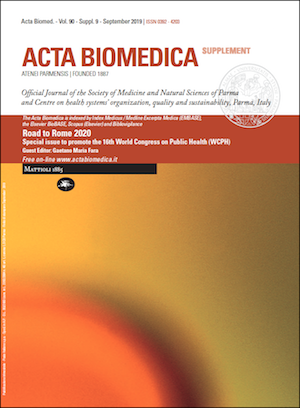The accreditation system of Italian medical residency programs: fostering quality and sustainability of the National Health Service
Keywords:
Post-graduate medical education and training; residency programs; continuous quality improvement; standards and requirements; sustainability in healthcare; National Health SystemAbstract
Background and aim: In June 2017, University and Health Ministries jointly enacted a decree implementing a new accreditation system for the Italian post-graduate medical schools (residency programs). We report the innovations introduced through the reform. Methods: Universities were called to submit post-graduate medical school projects to the National Observatory on medical residency programs, the inter-institutional committee responsible for the entire accreditation process, through an interactive web platform. The adherence to minimum standards, requirements and the performances were measured. After this first assessment, universities were asked to provide programs of improvement for critical schools. At the end of the evaluation, residency schools were proposed for a full or a partial accreditation. Results: Of the 1,431 post-graduate medical school projects submitted to the National Observatory by 37 public and 4 private Universities, 672 (47.0%) obtained a full accreditation, 629 (43.9%) a partial accreditation, with a gap to be filled within a two-year period according to a specific improvement programme, while 130 (9.1%) were not accredited. Further, 1,254 out of the 1,301 schools with a full or partial accreditation were activated according to the available public financial resources, excluding those performing the lowest. Annual surveys were in place to investigate the residents’ level of satisfaction concerning the quality of the training programs. The National Observatory further developed an experimental methodology to conduct on-site visits to support quality improvement. Conclusions: This reform can be considered an important initiative to guarantee high standards in the quality of care and to face the challenge of sustainability for the National Health System.
Downloads
Published
Issue
Section
License
This is an Open Access article distributed under the terms of the Creative Commons Attribution License (https://creativecommons.org/licenses/by-nc/4.0) which permits unrestricted use, distribution, and reproduction in any medium, provided the original work is properly cited.
Transfer of Copyright and Permission to Reproduce Parts of Published Papers.
Authors retain the copyright for their published work. No formal permission will be required to reproduce parts (tables or illustrations) of published papers, provided the source is quoted appropriately and reproduction has no commercial intent. Reproductions with commercial intent will require written permission and payment of royalties.







